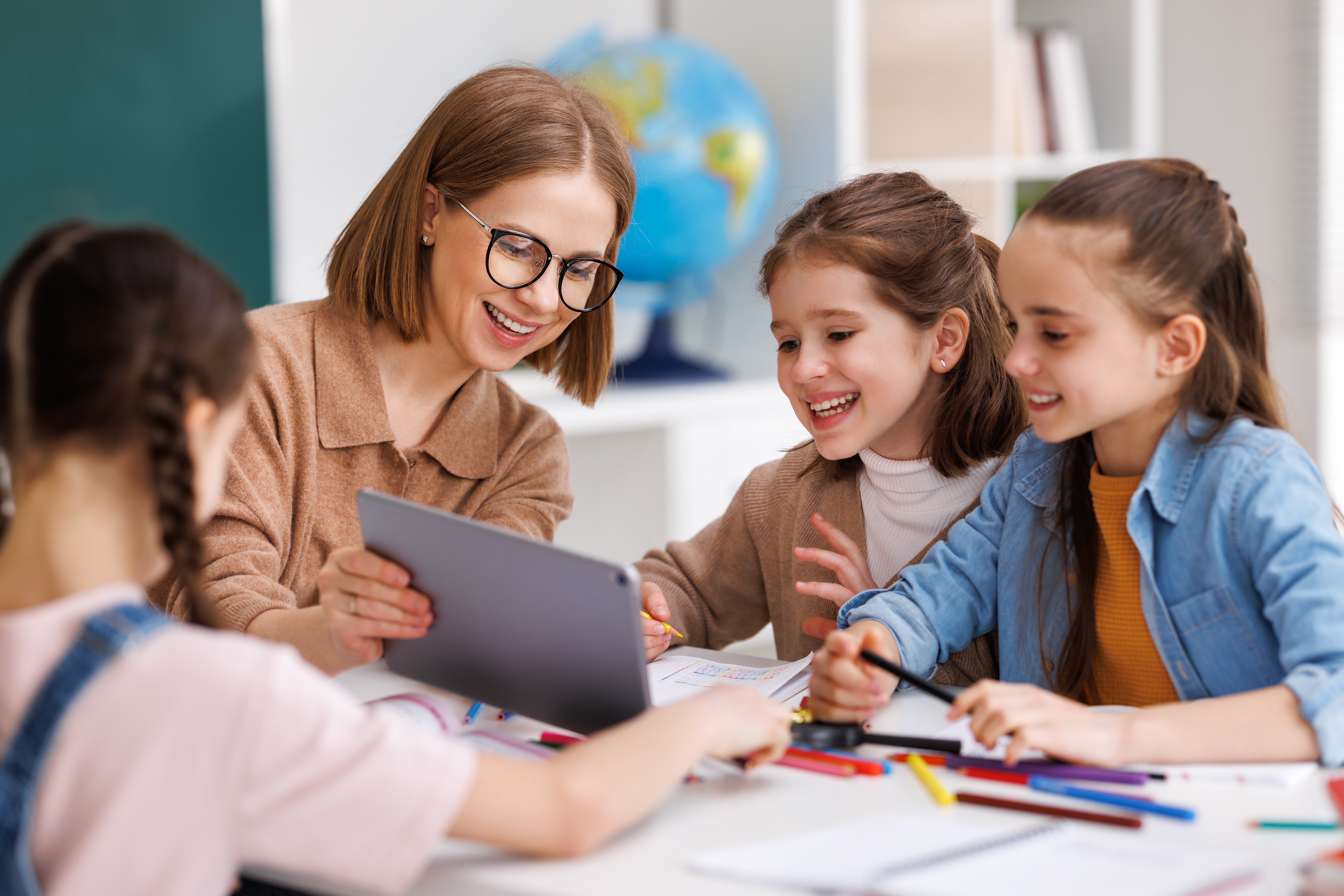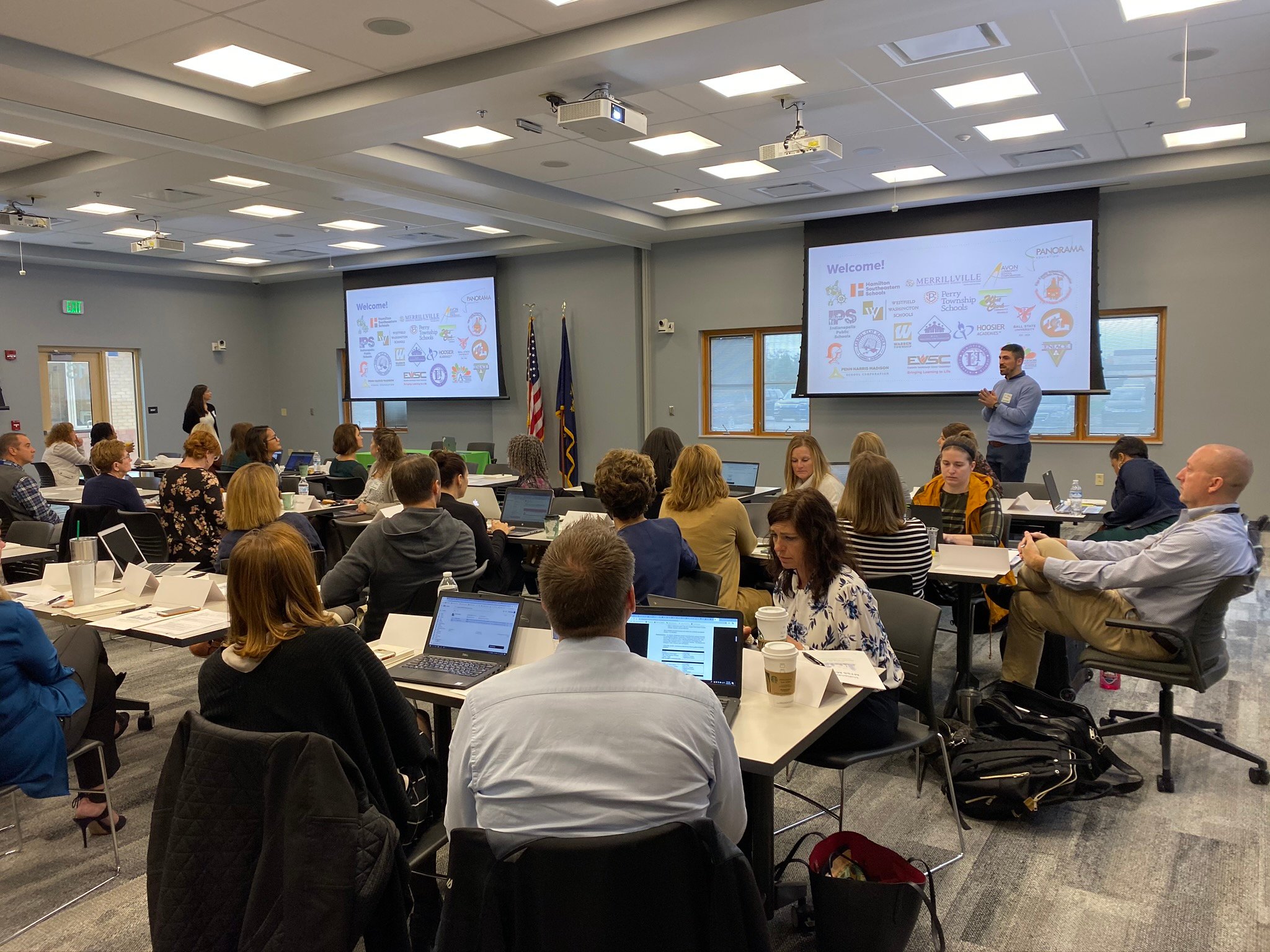Strong instruction starts with strong planning—but finding time for that planning isn’t easy
With just four hours per week on average for planning, teachers are expected to do a lot with a little but the right systems can help schools support thoughtful, intentional instruction.
That’s where curriculum mapping and lesson planning frameworks come in. When schools invest in structured, intentional planning systems, they give teachers more than a roadmap—they create the space for meaningful instruction, collaboration, and balance.
Here’s how long-term curriculum mapping and streamlined lesson planning work together to free up time, reduce stress, and improve student learning.
What Is Curriculum Mapping?
Think of curriculum mapping as your GPS for the school year.
Curriculum maps outline what students will learn, when they’ll learn it, and how lessons connect to key academic milestones. Rather than reacting week to week, teachers using curriculum maps can confidently plan ahead, knowing that every unit is building toward a larger goal.
Even more powerful? When shared across teams, curriculum maps support vertical and horizontal alignment—ensuring students have a consistent learning experience while teachers can collaborate and build on each other’s strengths.
With curriculum mapping, schools can:
- Prevent unintentional content repetition
- Ensure coverage of essential standards
- Promote coherence across grade levels and subjects
- Reduce weekend planning marathons
Curriculum Mapping vs. Lesson Planning: What's the Difference?
While both tools help teachers stay organized and reduce day-to-day decision fatigue, they play different roles in the planning process.
- Curriculum Mapping is the high-level, yearlong plan. It lays out the sequence of skills and content and connects lessons to standards, assessments, and student goals.
- Lesson Planning is the daily execution. It turns that big-picture vision into specific instructional moves—materials, activities, checks for understanding, and timing.
When teachers begin with a curriculum map, lesson planning becomes more purposeful and efficient. Instead of starting from scratch each week, educators can build on a strong foundation and focus their energy where it matters most: engaging students.
Getting Started: Your 5-Step Curriculum Mapping Process
When teachers don’t have a shared curriculum map, it’s easy for lessons to become siloed—leading to gaps in coverage, duplicated efforts, and missed opportunities to build momentum across classrooms. A thoughtful planning process creates consistency without sacrificing teacher autonomy.
Whether you're mapping for a single course or collaborating across a team, these five steps offer a clear, manageable starting point.
Step 1: Gather Your Requirements
Begin by collecting the essentials: your district’s curriculum guides, state standards, and any core programs or instructional resources you’re expected to use. Be sure to include required assessments—benchmark exams, state tests, or district-wide performance tasks—as these often shape pacing throughout the year.
Step 2: Map Your Calendar
Start by identifying non-instructional days: holidays, conferences, field trips, and testing windows. Then, calculate how many actual teaching days you’ll have each month. This step ensures your plans reflect the real instructional time available.
Step 3: Organize Content Into Logical Units
Look for natural groupings within your standards. Which concepts build on each other? What themes can be connected? For instance, in ELA, you might combine argumentative writing with relevant nonfiction texts; in science, you might link ecosystems with food chains.
Aim for units that span 2–4 weeks. This balance gives students time to engage deeply without overextending the focus.
Step 4: Assign Units to Time Slots
Sequence your units intentionally. Place foundational skills early, and schedule more complex content when you have longer stretches of uninterrupted instruction. After breaks, consider starting with familiar or accessible material to help students re-engage smoothly.
Step 5: Add Assessment and Material Notes
As you map out each unit, include any essential materials, technology, or support you’ll need—especially if it requires coordination with other staff or advance planning. Mark major assessments and space them out to avoid overloading students (or yourself) during critical weeks.
For example, if your state test falls in April, you might back-map your review time to ensure students feel prepared without rushing through content.
Why Do Teachers Need Curriculum Mapping and Lesson Planning?
When teachers have a clear curriculum map, lesson planning becomes faster and more focused—because the “what’s next?” is already decided. With a strong framework in place, it’s also easier to monitor student progress and identify who may need additional support. These systems create continuity across classrooms, making it easier for substitute teachers to step in without missing a beat. Most importantly, thoughtful planning builds lasting confidence. Teachers can feel assured they’re covering the right content, at the right time, in the right way, so every student stays on track.
How to Build Lesson Plans That Actually Save Time
With a curriculum map in place, lesson planning becomes more manageable, and more strategic. Instead of starting from scratch each week, you’ll have a strong foundation to guide your daily decisions. These teacher-tested strategies can help turn your long-term plan into effective, efficient instruction:
Create Unit Overview Templates
Kick off each unit with a one-page overview. Include your learning goals, major activities, and key assessment dates. This snapshot serves as your anchor for daily planning and helps keep the big picture in view.
Plan in Chunks, Not in Isolation
Think in 3–5 day instructional sequences rather than standalone lessons. Start with an introduction, build in practice, and end with an opportunity for students to apply what they’ve learned. This approach reinforces skills over time and supports deeper understanding.
Establish Consistent Structures
Use a familiar format like warm-up, direct instruction, guided practice, and exit ticket—to streamline your daily plans. Routines support student engagement and make it easier for substitutes to step in confidently when needed.
Prep Materials in Batches
Use planning periods to prepare materials for an entire unit. Whether that’s making copies, organizing handouts, or setting up manipulatives, batching your prep minimizes last-minute stress. Label bins or folders by unit so everything is ready when you need it.
5 Ways Curriculum Mapping and Lesson Planning Save Time
When used together, curriculum mapping and lesson planning reduce the need for reactive, last-minute decision-making—freeing up time for what matters most: building relationships, delivering meaningful instruction, and supporting student growth. Here’s how these planning tools help educators reclaim their time:
1. Eliminates Repeated Planning Every Year
Instead of recreating your scope and sequence every fall, strong curriculum maps and reusable lesson plans let you start the year focused and confident. Teachers can shift their energy toward building classroom culture and getting to know their students—without second-guessing what they’re teaching in week three.
2. Prevents Last-Minute Scrambling
With a clear yearlong plan and structured daily lessons, you can avoid the pressure of last-minute decisions. Field trips, projects, and assessments get scheduled ahead of time, so you're not rushing to pull materials together the night before. Planning becomes proactive, not reactive.
3. Makes it Easier to Align With Standards
When curriculum mapping starts with state standards and district priorities, teachers don’t have to revisit requirements each week. Instead of constantly checking for alignment, you can focus on designing engaging instruction, knowing it’s grounded in what students need to learn.
4. Simplifies Assessment Planning
Curriculum maps naturally identify when and how to check for understanding. With clear unit goals and lesson objectives in place, assessments become easier to create—and more meaningful. You’re not scrambling to design tests; you’re reinforcing learning and tracking progress with intention.
What Happens Without Systems?
Without a clear curriculum map and lesson planning structure, even the most experienced educators are forced into a cycle of reactive decision-making. Over time, the cost isn’t just logistical—it’s personal, professional, and deeply tied to student outcomes.
Here’s what’s at stake when schools don’t invest in supportive planning systems:
Lost Time and Energy
Without a roadmap, teachers often spend nights and weekends preparing lessons from scratch. What begins as a late Sunday session can quickly become a weekly pattern, leaving little time to rest, recharge, or enjoy life outside the classroom.
Increased Stress and Risk of Burnout
When there’s no long-term plan, teachers are left constantly wondering: Am I covering the right material? Will we finish in time? This persistent uncertainty creates stress that builds throughout the year—affecting job satisfaction, mental health, and retention.
Inconsistent Student Learning
Students thrive on structure and intentional sequencing. Without a clear plan, they may miss critical foundational skills or struggle with disjointed lessons. Worse, they may encounter unnecessary repetition or gaps that slow down their progress and diminish engagement.
Missed Professional Growth Opportunities
When planning consumes every spare moment, there’s little bandwidth for reflection, collaboration, or skill-building. Teachers may miss out on coaching, curriculum conversations, or professional learning that could elevate both their practice and student outcomes.
Strained Work-Life Balance
Excessive planning demands often spill into personal time, making it harder to be present with family or maintain a sustainable rhythm outside of school. Over time, this imbalance can affect relationships, wellbeing, and long-term commitment to the profession.
How Panorama Supports Teachers with Tools That Make Planning More Effective
When curriculum mapping is paired with the right tools, teachers can get hours of productivity back each week. Panorama’s AI Roadmap for District Leaders includes 100+ time-saving prompts from our Teaching & Learning Team designed to support lesson planning, differentiation, and daily instruction. It’s a practical next step to help you turn strong systems into daily impact.







